Apartment rents have soared across the five major capital cities, according to CoreLogic’s most recent rental market data:
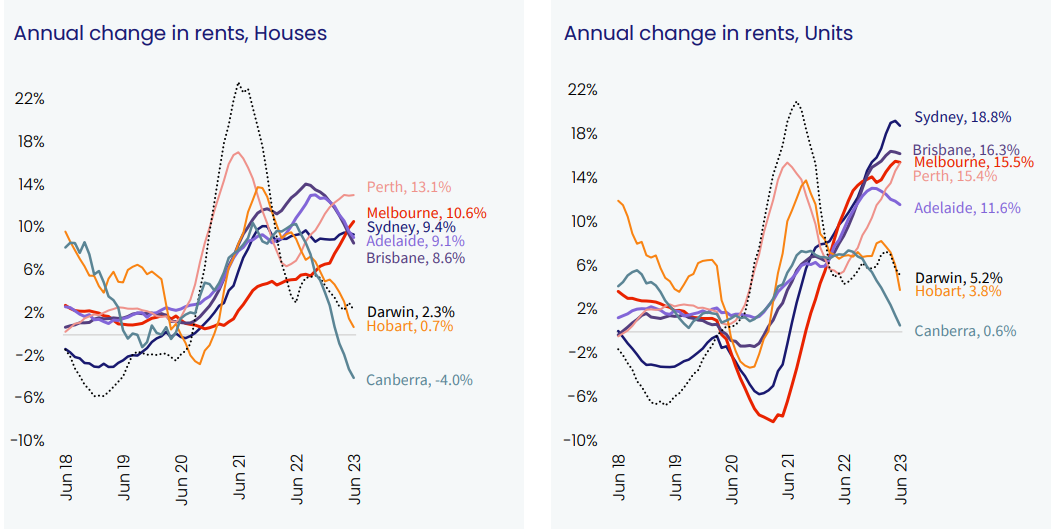
Source: CoreLogic
This rent increase follows a decline in unit rental vacancies to just 1.0%:
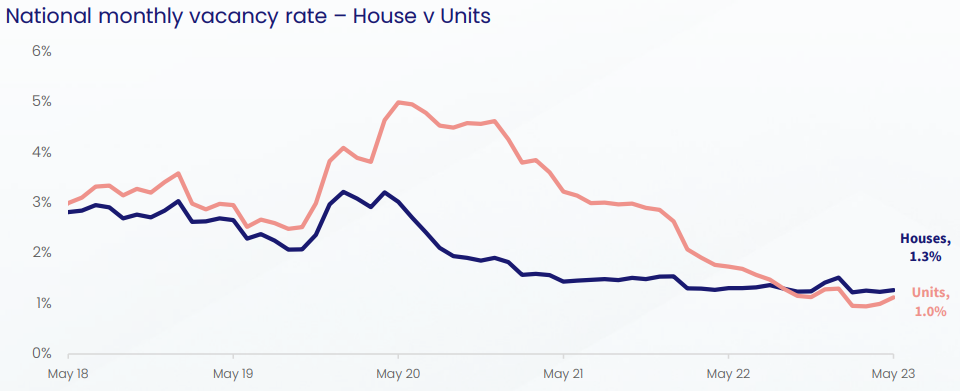
Source: CoreLogic
The forward-looking indicators spell trouble for apartment tenants.
The number of apartments approved for construction is tracking near 2012 levels, according to the Australian Bureau of Statistics:
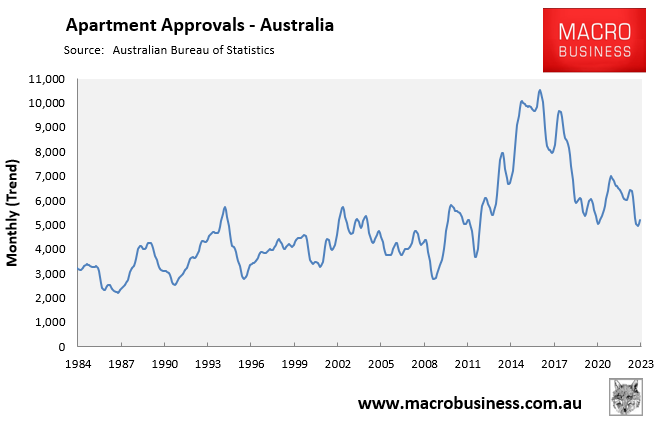
Charter Keck Cramer’s analysis of off-the-plan apartment projects across Melbourne shows that Melbourne’s apartment supply is set to crash by 7900 units, or 65.3%, by 2025:
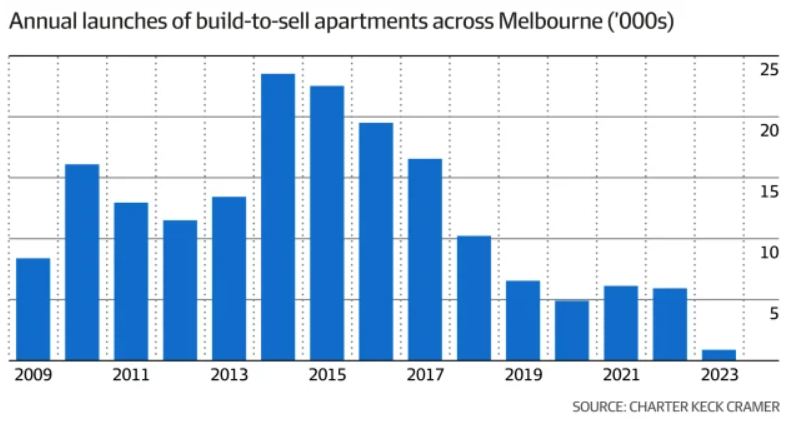
Richard Temlett, Charter Keck Cramer’s national executive director, says the RBA’s rapid interest rate hikes, the surge in construction costs and poor consumer confidence have made many apartment projects unfeasible and depressed sales rates.
The decline in apartment approvals coincides with a surge in net overseas migration (population increase).
Following a record 500,400 increase in Australia’s population last calendar year, the federal budget forecasts a record 1.5 million net overseas migration in the five years to 2026-27, which will drive a 2.18 million increase in Australia’s population – equivalent to five Canberra’s or one Perth’s worth of population.

Source: 2023 federal budget
The majority of this population increase will land in Victoria (Melbourne) and New South Wales (Sydney), where apartment approvals have fallen most heavily:
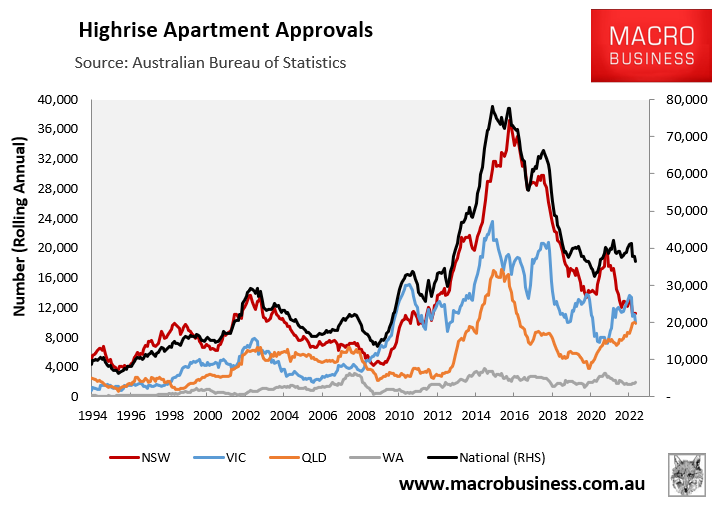
This growing rental demand will be met with dwindling supply, causing the rental market to tighten even further and rents to rise.
Simply put, the Albanese Government’s record immigration policy is a nightmare for tenants.
It will drive rents into the stratosphere, causing financial misery for poorer households, and forcing thousands more people to become homeless.
Where will the hundreds of thousands of migrants and students who arrive each year live when housing is already in dire shortage?
Labor’s Big Australia immigration policy is a disaster for renters and lower-income Australians.

